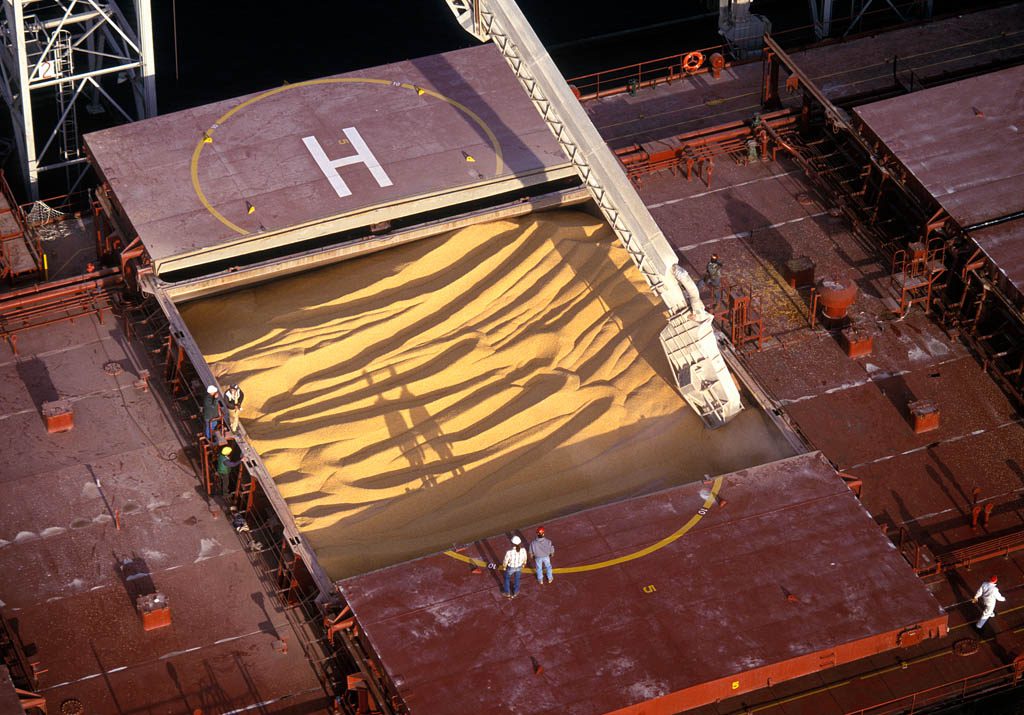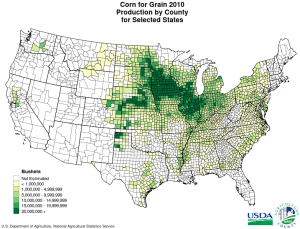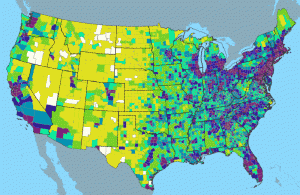Yemen’s Houthis Target MSC Ship in Gulf of Aden
DUBAI, April 25 (Reuters) – Yemen’s Houthis said they targeted the MSC Darwin ship in the Gulf of Aden on Thursday, as the Iran-aligned group resumed attacks on commercial ships in the Red Sea...


Should US Mariners care about farm subsidies?
Right now the hot topic in Washington is a debate over the US Senate’s authorization of the Farm Bill, a bill that is passed every 5 years by the United States Congress and provides subsidies to American agriculture interests. Large subsidies. The 2012 version of the bill is estimated to cost taxpayers well over $900 billion over the next ten years and is possibly the single most important maritime legislation to be passed this year.
The bill is getting heavy criticism from groups as diverse as military hawks to celebrity chefs but it has seen very little resistance from American mariners. Why? Because few US sailors realize the importance of Agricultural debates to the maritime strength of their nation.
The need for emergency hunger relief is not diminishing as food continues to be a central topic in many of the countries which America wishes to support including Pakistan, Afghanistan and Sudan while many other countries will experience new emergencies if food deliveries slow down. Yet the money provided for these programs may be cut.
There is a cause of concern to American mariners since over 2 million tons of food aid commodities are sent overseas each year and most of this cargo has departed American ports on American flagged ships. According to USA Maritime – a coalition committed to promoting and protecting the U.S. Maritime Industry – the deep sea portion of the freight alone results in more than 97,000 jobs in other parts of the U.S. economy. Yet, according to Politico, the annual appropriations for food aid already have dropped from $2.3 billion in 2009 to $1.46 billion this year and might go lower as a result of this bill.
“There is a real and tangible movement to go away from American commodities,” Bryant Gardner, a maritime lawyer who specializes in the subject, told Politico. “Their elimination or scaling down would be disastrous for the U.S. merchant marine and sealift capabilities, as well as the fight against food insecurity.”
Why is this happening?
Most experts identify the primary cause for a reduction in foreign food subsidies to the ailing US economy and a conservative backlash against any foreign aid. While accurate, the reasons why the US Merchant Marine has found little protection from Washington in the previous half century runs much deeper and many of the most important reasons are directly related to American agriculture.
Agriculture is a major industry in the United States supporting over 2 million farms, covering an area of 922 million acres (3,730,000 km2), facts which give strength to food industry representatives in Washington. Farm lobbies are strong and, some would say, rightfully so considering the industry supports over 757,9000 workers but ask how many jobs other industries would create if they received an equal amount of government handouts? How many shipping jobs would this country have if a $900 billion maritime bill was passed?
The question is pointless because a maritime bill won’t pass.
One reason is that the agricultural lobbies are against it. The U.S. Farm Lobby maintains an inordinate amount of influence in Washington and spends an innordinate amount of money, much of which comes from taxpayers, to maintain their influence and the fact is that American ships are expensive and many in the farm industry would rather ship grain overseas aboard cheaper foreign hulls. And it’s not just the corporations who are against us, a more significant problem is that so are the states.
Agricultural states spend a significant amount of time and energy each year supporting the interests of farmers and funding farm related institutions and even the academic institutions of farm states spend tax dollars in support of the cause. Not in American port states like California, New York and Texas.




Lets look at the number one product of American farms, corn, a product in which American farms produced 256,900,000 metric tons of in 2003. The map to the right shows american corn production while the map on the left shows the population density by county. Notice that the country is heavily populated along the coasts but not in the agricultural regions where corn is produced. This is important. In the American legislator the Senate holds the majority of the power yet, unlike the house of representatives, where populated states get the most representatives, in the Senate each state, regardless of size, gets an equal number of votes.
Yes, the number of states along the coasts roughly equals the number inland states, so they have equal representation in the Senate but the senators in coastal states are distracted. They are not concerned with maritime issues because the high population densities of the coastal states create larger problems like poverty, education and job creation, problems that far outweigh the needs of their local ports. Also the amount of income that these states receive from ships in comparison to other industries is small. Farm states don’t have these problems, their senators can focus on agriculture.
In short, a significant amount of the government’s power in America is held by the US Senate where farm states have equal representation and the maritime states have more important problems to deal with. And unless the US shipping industry moves away from the coast, the US Merchant Marine will continue towards a slow death.
Join the gCaptain Club for curated content, insider opinions, and vibrant community discussions.


Join the 105,881 members that receive our newsletter.
Have a news tip? Let us know.
Access exclusive insights, engage in vibrant discussions, and gain perspectives from our CEO.
Sign Up




Maritime and offshore news trusted by our 105,881 members delivered daily straight to your inbox.



Essential news coupled with the finest maritime content sourced from across the globe.
Sign Up